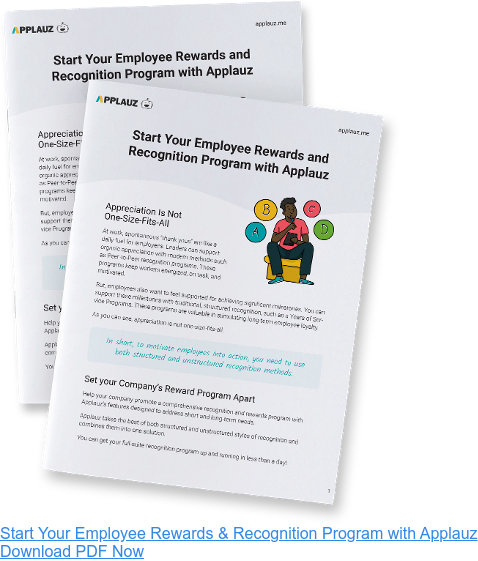Show me your employee turnover rate and I’ll tell you whether your organizational culture needs stronger core values. Concepts like workplace values used to be considered “nice-to-haves” or downright unnecessary. In today’s work environment, they are essential to an organization’s survival.
Gallup data shows that employee engagement has been on the decline since 2021. Employees’ connection to the mission or purpose of the company is one of the components of engagement that has decreased the most. What does this have to do with core values? As Adam Fridman, founder of Mabbly, says in an Inc. article, “Purpose is about why we do what we do, values are how we achieve purpose.”
According to McKinsey, 82% of employees believe it’s important for their company to have a purpose and more than two-thirds say their sense of purpose is defined by their work. Furthermore, 93% of employees who feel inspired by an organization with a strong purpose are likely to recommend that company to others.
“A company's purpose is its higher, driving goal or mission that provides direction to all employees. It's what gives meaning to all business activities,” Dr. Curtis Odom, Managing Partner at Prescient Strategists and Associate Professor of Management at Northeastern University, writes in a Forbes article.
Company values – “the beliefs, principles and standards that guide the behavior and decision-making” are equally important to creating this meaning and fostering a strong sense of organizational culture, adds Odom.
In other words, strong workplace values are essential to success, and if workers don’t feel that they can currently buy into their organization’s values, they won’t believe in your mission or work together as a team. If you want to be at the forefront of best practices, here’s how you can counter that trend and effectively promote core values in the workplace.
What Are Core Values?
Simply put, core values are guiding principles that inform behavior. They translate a company’s bigger purpose into decisions and actions. They turn an inspirational “why” into a tangible “how.”
The more congruent the relationship between the values that a company says it cares about and the actions that take place in the company on a daily basis, the stronger the culture will be. It’s not enough to put words like “honesty” and “collaboration” on a wall. To foster a strong sense of core values, this congruence must exist at all levels of a company – from individual contributors to upper management and from internal business activities to external ones.
Wondering what core values look like in action? Let’s say that a business values diversity and inclusion. Implementing this core value would mean actively promoting diversity through inclusive hiring practices. It would look like creating safe spaces where employees from different backgrounds can share various perspectives and collaborate. It would take the form of pay transparency and policies that combat inequity in the workplace.
Here’s another example. If a company values transparency, that core value in action would have senior leaders regularly communicating the company’s financial performance, objectives, and strategic pivots. Teams would be encouraged to share regular feedback, from managers discussing performance with their reports to employees being able to share their comments without fearing repercussions.
On the other hand, peddling core values without actually living them can look like a company claiming it values innovation while punishing people for mistakes – there is no innovation without the psychological safety to try new things and potentially fail. Or when a manager says that work-life balance is important yet works 80 hours a week – workers get mixed messages about values and priorities.
Here’s an even bigger reason to pay attention to core values and their impact on culture and business goals: Only 23% of U.S. employees strongly agree that they can apply their organization's values to their work every day, and only 27% strongly agree that they "believe in" their organization's values, according to Gallup.
It’s imperative that words and actions match when it comes to values. If what happens on a daily basis at work doesn't align with the values that an organization desires to have, there’s work to do.
The Importance of Core Values In the Workplace
The importance of core values in the workplace extends beyond the inner workings of an organization. It’s also about a company’s value proposition in a competitive, crowded marketplace.
"To me, marketing is about values. This is a very complicated world, it's a very noisy world--and we're not going to get the chance to get people to remember much about us. No company is. So we have to be really clear on what we want them to know about us," Steve Jobs once told Apple employees.
Jobs made that statement long before factors like working from home, hybrid approaches and the emergence of advanced AI technology disrupted the business landscape. In today’s uncertain world, these seismic shifts are only going to keep happening – and potentially bring down entire businesses with them.
When an organization has strong values, it has a strong brand. It is better equipped to keep standing out. Customers are more likely to stay loyal to the brand as it develops new ideas, services and products. Technology will become obsolete, and consumer habits will shift. Values stand the test of time.
“People don't buy what you do; they buy why you do it,” said Simon Sinek, leadership expert and author of “Start With Why,” in a viral TED Talk.
This statement sure holds true for Gen Z consumers. Gen Zers value sustainability and it shows in their shopping habits: 62% of Gen Z shoppers prefer to buy from sustainable brands, and 73% of them are willing to pay more for sustainable products, according to First Insight.
Not to mention the fact that the younger generation will be shaping the future of work. The World Economic Forum forecasts that by 2025, Gen Z will account for one-third of the workforce. According to Deloitte,“to win the hearts of Generation Z, companies and employers will need to highlight their efforts to be good global citizens.”
“Actions speak louder than words: Companies must demonstrate their commitment to a broader set of societal challenges such as sustainability, climate change, and hunger,” adds Deloitte.
Strong core values will therefore not only continue to matter, but will also likely matter more as Gen Zers make up a larger percentage of both the consumer landscape and the workplace.
With benefits such as increased employee engagement and retention and bigger customer appeal, promoting core values in the workplace is a no-brainer – all those things affect a company’s bottom line, too.
How to Define and Promote Core Values at Work
Ready to get clear on your core values and invest in promoting them so they can become central to your culture?
According to Gallup, to shift their culture from “what is” to “what could be,” leaders need to make sure that the culture is clearly defined and communicated; quantified so that leaders know whether their culture-building efforts are successful; and intentionally managed, with activities and processes that support the desired culture. All these steps are relevant to the implementation of strong core values.
Defining Your Unique Core Values
Your core workplace values will be more effective if they aren’t forced upon workers top-down. Chances are, your culture already has positive pillars that you can build on in terms of purpose and values. You may not have named them yet, but you can find clues about them in the things that are naturally prioritized across the board and make your culture unique. The steps below will help you gain clarity on them:
- Solicit input. Start getting curious about those things while soliciting input from employees at all levels. Consider running surveys and hosting workshops to identify shared beliefs and principles. Don’t hesitate to work with workplace culture consultants to make the most of this process, as it can be more complex than you think and a crucial piece of the puzzle.
- Involve leaders. Make sure that leadership is actively involved in the process and that all leaders understand the importance of what you’re trying to achieve. Their commitment and buy-in is crucial to the successful integration of core values.
- Start with your mission and vision. When getting clear on your values, start from your organization’s mission and vision. Remember that you ultimately want to reverse-engineer the bigger purpose of your organization into core values that can be used to drive behavior. This makes for a powerful organizational identity.
- Group core themes. As you brainstorm, themes will start to emerge, some of which may likely be grouped under the same core value. For example, concepts like transparency, honesty and feedback may be rolled up into a “radical candor” core value.
- Get specific in your definitions. It’s important to clearly articulate the meaning and significance of each core value that you zero in on. Provide concrete examples of behaviors that reflect each value and avoid using abstract or ambiguous language. Clear definitions will help employees get on board with the values.
Communicating and Implementing Core Values at Work
Once you get clear on your core values, it’s time to start implementing processes that foster them daily. Your implementation efforts should include different touchpoints within the broader scope of your business operations and employee experience. Follow these four steps:
- Start from the very beginning. Integrate core values into hiring, training and onboarding processes. This helps new hires understand and embrace the organization's cultural expectations from the get-go. Additionally, include core values in performance evaluations and decision-making frameworks so that they’re considered in day-to-day operations.
- Communication is key. Develop a strategic communications plan to make your core values loud and clear. Use multiple channels, from company meetings and newsletters to internal communication platforms. Rely on different tools to drive home the message that your core values are truly at the core of your priorities.
- Use storytelling. Sharing stories that illustrate how people exemplify core values in their work can help bring the values to life and remind employees to prioritize them. Visual representations, such as posters, infographics, or videos, can also serve as constant reminders throughout the workplace, whether in the office or within virtual spaces such as group chats.
- Walk your talk. Remember that it’s critical to lead by example. Leaders must consistently walk their talk and embody core values. Without that step, even the best communication strategy will fall short. Employees are more likely to embrace core values when they see leaders actively staying true to them.
Measuring the Success of Your Efforts
How do you quantify the success of your efforts when it comes to promoting core values in the workplace? You’ll want to run anonymous surveys regularly to get an idea of how much people understand your core values, apply them and believe in them.
Metrics such as employee turnover rate can also be helpful to gauge engagement levels and assess whether there are correlations between turnover and your efforts to promote core values. Other factors affect turnover, of course, but it’s a good sign if you notice people sticking around longer.
As with any strategy, you’ll probably need to go through a trial-and-error process to figure out what works best to foster your values in concrete ways. Test a few different tactics, garner feedback through surveys and qualitative data, optimize your processes, and then rinse and repeat.
Keep in mind that culture-building efforts, such as promoting core values, can take time to yield results. Don’t get discouraged if you don’t notice an immediate difference. Consistency is required for best results.
Leveraging Employee Recognition to Foster Core values
Employee recognition is a powerful tool to reinforce the importance of core values within your organization. Public recognition encourages certain behaviors and communicates the importance of your core values over and over again.
To do this well, start by defining specific behaviors that are in line with your values. Managers should feel confident about the kind of efforts to reward and recognize. This, in turn, will help employees have the same level of certainty about the traits and actions to focus on cultivating at work.
Integrate your values in recognition programs through the use of technology. For instance, Applauz Recognition Badges are visual tokens of appreciation that help you align employee recognition with your culture and values. These are more than cute shout-outs: they can shape and elevate your efforts in a personalized way and across departments.
Here are a couple of suggestions:
- Do you value sustainability? Create a sustainability-oriented badge.
- Do you want to reward an employee who demonstrates a consistent, 360-degree embodiment of your core values? Give them a “Values Ambassador” badge and make sure it’s seen as the highest honor.
- Are you focused on emphasizing DEI? Recognize individuals who champion inclusivity with a custom badge.
The possibilities are endless. Get creative and use these badges often and in different contexts.
While custom badges are impactful, you still want to use a variety of recognition methods to successfully implement core values.
These can include:
- Yearly awards ceremonies
- Slack channels dedicated to employee shout-outs
- Incentives such as gift cards
Keep things varied. Different people value different types of recognition, so this will help you connect with your employees on a deeper level.
Regardless of the medium, tie core values to organizational goals when recognizing employees. Emphasize the way the sales team was able to hit their target thanks to their dedication to living by core values. Compliment your report on the impact of their actions as it pertains to core values. Celebrate an employee anniversary and mention all the ways in which the employee lives by core values along with the impact it has on the team and company.
Leaders of the company should set an example when it comes to values and establishing their importance. If you continuously demonstrate how crucial they are, but also always tie performance and success back to your values it will. drive home the point that core values aren’t fluffy – they have a powerful impact on others as well as business results.
Finally, peer-to-peer recognition is an increasingly popular culture-building tool. It works just as well as top-down recognition. So, put a system in place for employees to recognize each other around core values. Keep it easy and fun – make people want to give each other recognition instead of seeing it as a forced task.
By incorporating these strategies, you can leverage employee recognition to reinforce and promote your core values. The more you do it, the more you’ll notice that employees become naturally motivated to live by these values in their daily actions and interactions.
Core Values Are Worth the Investment
It’s time to stop seeing core values as a luxury and start viewing them as a necessity that will help your organization stay ahead of the curve for years to come. Actions speak louder than words, and core values are the missing piece of the puzzle that will help you turn the ideals that you hold for your culture into a reality. Employee retention will flourish as a result. Workers who have a sense of purpose at work and feel valued are happier. Happy workers stay – and they stay engaged, which leads to higher productivity and better results. It’s a win-win.
So, don’t wait until the day that you have more space and time to promote core values. Let’s face it: That day will never come unless you insist on making it happen. Make your core values a priority now, especially considering that it’s a process that takes time and consistent effort.
Lean into different strategies, use employee recognition to keep reiterating the guiding principles that matter the most, and keep tracking the impact of your tactics.
Soon enough, you’ll be amazed at the positive effect that living by your values can have on both employees and customers.
About the author
Anouare Abdou
Anouare Abdou is a seasoned HR and business writer passionate about leadership, productivity, and the future of work. Her words have appeared in Business Insider, The Ladders, Thrive Global and more.




